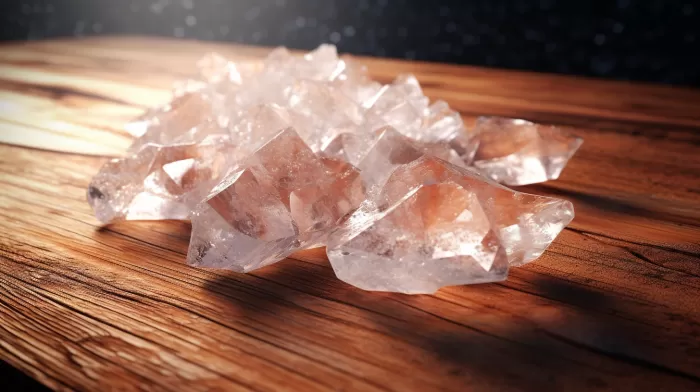Reducing salt intake has long been associated with improved heart health, but an increasing number of studies are showing that low-salt diets could actually be hazardous to your health. Two alarming studies, one from Cochrane in 2014 and one published in the Journal of American Medical Association in 2011, found that low-salt diets had no significant effect on cardiovascular mortality or heart health. In fact, the study in the Journal of American Medical Association discovered that those with the least salt intake were five times more likely to die from heart disease than those with a higher salt intake.
Salt and insulin resistance
A study published in the journal AMJ Hypertens found that restricting salt intake leads to insulin resistance. Insulin resistance, in turn, can lead to diabetes and heart disease. Sodium, the primary component of salt, has been found to significantly improve insulin function. As one study stated, “an abundant sodium intake may improve glucose tolerance and insulin resistance, especially in diabetic salt-sensitive, and/or medicated essential hypertensive subjects.”
Low-salt diets deteriorate overall health
According to Dr. W.C. Douglas, following a low-salt diet is seriously harmful to your health. He reported in his “Daily Dose” newsletter that one study found seniors with the lowest salt consumption had an increased risk of broken bones and early death. In the book “Salt Your Way to Health,” David Brownstein, M.D., states that a study of nearly 3,000 hypertensive subjects found a significant 430% increase in heart attacks in those with the lowest salt intake compared to those with the highest intake. He explains that low-sodium diets increase the risk of heart attacks due to multiple nutrient deficiencies of minerals, potassium, and B vitamins.
Salt aids immunity
A study published in Cell Metabolism demonstrated that dietary salt helps the body defend against microbes, thus boosting immunity. Researchers observed that a high-salt diet increased sodium accumulation in the skin of mice, which in turn, boosted their immune response to a skin-infecting parasite. In light of their findings, the researchers suggest that dietary salt has the potential to promote host defense against microbial infections, and they propose developing high-salt-containing wound dressings and other salt-boosting antimicrobial therapies.
The advantages of sea salt
Unrefined natural sea salt provides numerous health benefits and should be chosen over common table salt, which is chemically treated and stripped of essential minerals like calcium, magnesium, and potassium. The health advantages of sea salt, which contains 17 minerals, include:
- Reducing tissue acidity
- Stabilizing irregular heartbeats
- Balancing blood sugar levels
- Revitalizing nerve cell communication with the brain
- Aiding absorption processes in the intestinal tract
- Preventing muscle cramps
When purchasing sea salt, make sure it is not refined or boiled to produce crystals. Sea salt should be harvested and dried through evaporation to be considered natural.



